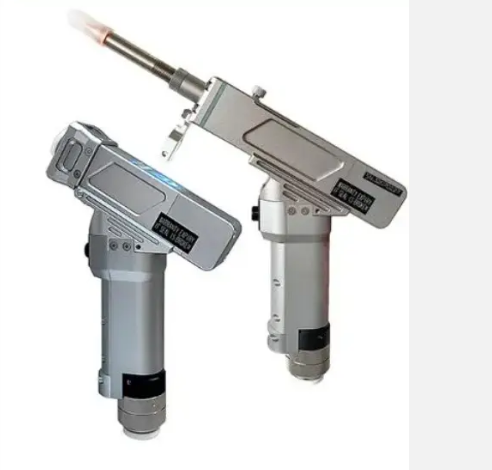Industrial laser cleaning machines are advanced tools for the non-contact removal of contaminants, rust, paint, and other coatings from surfaces. They use a high-powered laser beam to achieve precise and efficient cleaning without damaging the underlying material. Here is a detailed overview:
How Industrial Laser Cleaning Machines Work
Laser Emission: The cleaning machine emits a laser beam that is directed onto the surface that needs to be cleaned.
Absorption and Ablation: The contaminant absorbs the laser energy, causing it to heat up, evaporate, or sublimate. This process, known as laser ablation, removes the unwanted layer without affecting the substrate.
Controlled Process: The process is highly controllable and can be adjusted depending on the type of material and contaminant.
Key Features and Benefits
Precision: Allows for precise cleaning, particularly for complex parts and sensitive assemblies.
Non-Abrasive: Unlike traditional methods such as sandblasting, laser cleaning does not wear down the substrate.
Environmentally Friendly: Reduces the need for chemical cleaning agents and solvents, thereby minimizing the impact on the environment.
Efficiency: Fast processing speeds and minimal setup times increase overall productivity.
Safety: With appropriate safety measures, the risk of component damage can be reduced and operator safety can be increased.
Applications
Metal Surface Cleaning: Removes rust, oxides, and other contaminants from metal surfaces in industries such as automotive, aerospace, and manufacturing.
Paint Removal: Effectively strips paint from a variety of surfaces without damaging the substrate.
Repairing: Used to restore historical artifacts and buildings, gently removing accumulated dirt and contaminants.
Bond/Weld Preparation: Cleans surfaces before bonding or welding to ensure better adhesion and a stronger joint.
Types of Laser Cleaning Machines
Pulsed Lasers: Emits a laser beam in pulses, suitable for delicate and precision cleaning tasks.
Continuous Wave Lasers: Emits a continuous laser beam, suitable for larger, more powerful cleaning applications.
Choosing the Right Laser Cleaning Machine
Factors to consider include:
Power Output: High power for heavy-duty cleaning, low power for delicate tasks.
Wavelength: Different wavelengths are better suited for different materials and contaminants.
Portability: Depending on the application, a portable or fixed unit may be preferable.
Automation: Some systems can be integrated into automated production lines for continuous operation.
Safety Considerations
Laser Safety Training: Operators must be trained in laser safety to prevent accidents.
Protective Gear: The use of laser safety goggles, protective clothing, and proper ventilation systems is essential.
Leading Manufacturers
Some well-known manufacturers of industrial laser cleaning machines include:
Clean LASER
P-Laser
Laserax
Coherent
Trumpf
Conclusion
Industrial laser cleaning machines represent a modern solution to a variety of cleaning and surface preparation needs across multiple industries. Their precision, efficiency, and environmental benefits make them a valuable tool for maintaining and preparing materials and surfaces.

